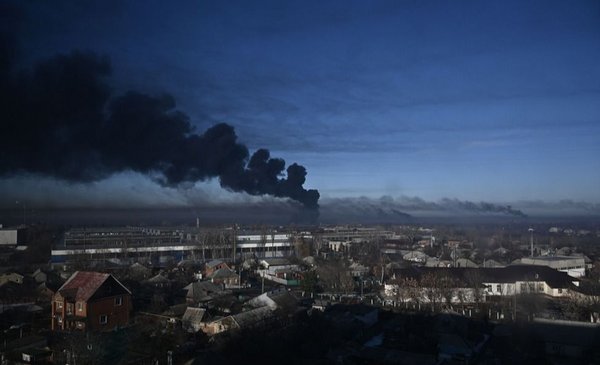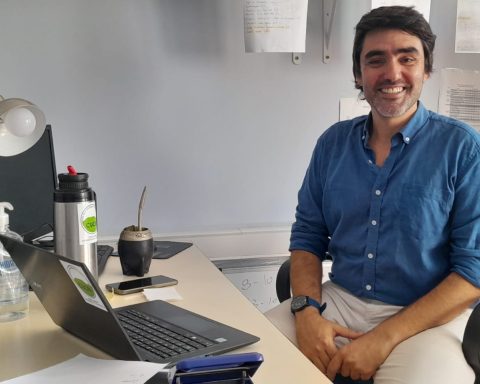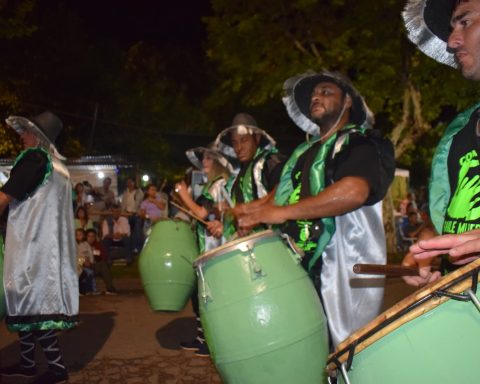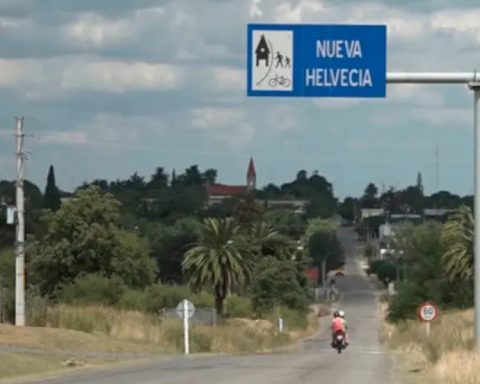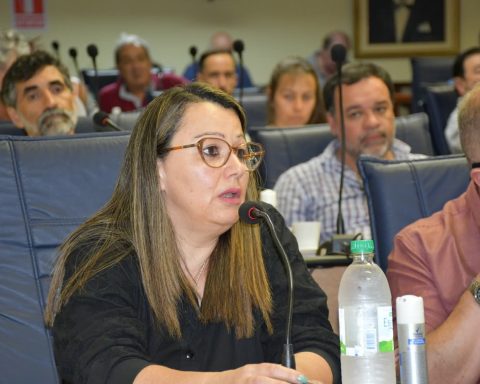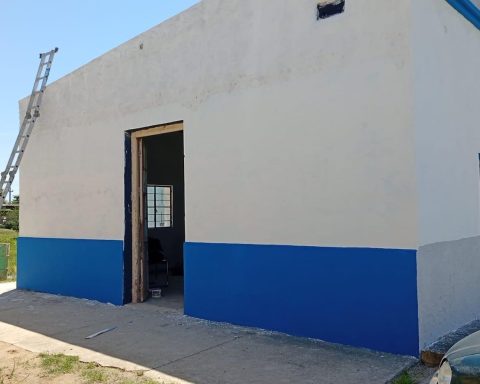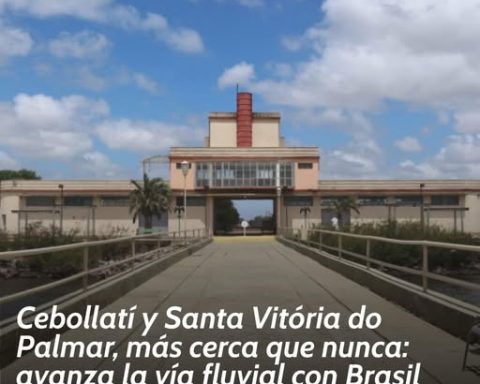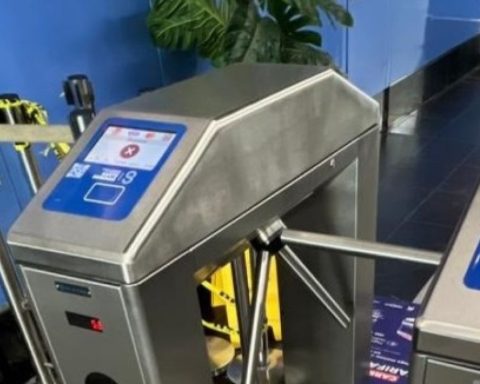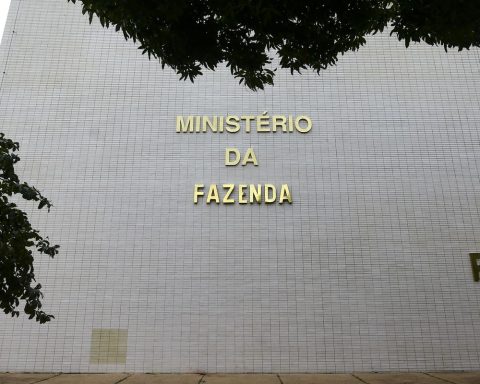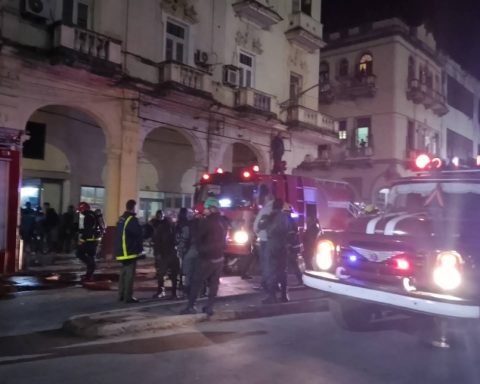Camila, Alan, Joaquín and Sebastián have been working for about a year in a call center linked to the financial market, more specifically to the world of cryptocurrencies. According to Cecilia, one of her co-workers – also Uruguayan – many Latinos work in this field in Ukraine. “We are all documented and working legally”, she does not take long to clarify in conversation with The Observer from Cyprus. They all have the Ukrainian identity card and the papers up to date.
In a few days Cecilia will be 24 years old and until last February 14 she was with her four companions who are between 20 and 28 years old in the country that today mourns at least 200 deaths due to the Russian invasion.
Although they were aware of the escalation of tensions and Putin’s threats that suggested an attack, they did not imagine that the war was about to break out.
“They were going to travel on February 15, but information was leaked that they were not going to attack until the end of February, after the Olympic Games, when there was better weather, that is why they did not travel,” says the co-worker from the four young people from Cyprus, a country that they also had as their original destination.
“But everything was rushed and it was already too late,” Cecilia said in dialogue.
Except for Joaquin, who was in Lviv when the Russian troops advanced, they were all on the Ukrainian-Romanian border.
Although only a train separated them from their departure from the war, it was impossible for Alan, Camila and Sebastián to board any of the cars that would take them directly to Romania. According to their companions, they spent hours without food, tired and cold. “There were a lot of people waiting for the trains, they told us it was very chaotic, even when there was a lot of crowding, the security guys would shoot into the air,” Cecilia explained based on communications with the Uruguayans.
Almost at 8:00 p.m. in Uruguay (00:53, European time this Sunday), the young woman received the last message in several hours from her friends.
“We can’t go to Romania. We are on the border with Poland. The situation is complicated. I do not know what will happen. We are fine”. With less and less battery in their mobile phones, the young people continued their journey sending brief messages to safeguard the connection with their loved ones.
Several of his colleagues agreed that they were already on the third day of unsuccessful attempts to leave the country, so their friends and relatives campaigned through social networks, addressing President Luis Lacalle Pou and the Ministry of Foreign Affairs. , asking so that they would not be forgotten.
Another of her close friends reported that since last Friday they had been in contact with the Foreign Ministry for them. “As long as they didn’t cross the border, they couldn’t do anything. They were pretty attentive anyway,” she highlighted.
Sixteen hours after that last message, at 12:36, Joaquín confirmed to his friends that he had been able to cross into Poland just like Alan, Sebastián and Camila. “The four of them are in Poland”, several of his friends confirmed to The Observer, while also confirming that Carlos De Pena and another Uruguayan named Bruno Moscovich were in Modalvia. Everyone safe.
The departure of Moscovich and De Pena
Bruno was desperate in an apartment in the Ukrainian capital. He was alone. His only contacts with the Foreign Ministry had been with the charge d’affaires in Romania and with a consular official from the Ministry of Foreign Affairs. Bruno didn’t know what to do or how to get out, and as long as he didn’t, the chancellery told him there was little they could do for him.
The situation reached the ears of the Vice Chancellor, Carolina Ache, who immediately contacted him to encourage him and tell him that they would do everything possible to get him out. From that moment the undersecretary remained in permanent contact with the Uruguayan.
Bruno ended up in the bunker where the Uruguayan Dinamo Kiev footballer, Carlos De Pena, was, along with 37 Brazilians. Nobody thought it could be smart to put them together, even though they were close.
From the hotel in Kiev they went in six cars to the train station, where they took a train to Chernovtsy. After more than 17 hours, they crossed to Moldova and from that country to Bucharest by bus for several more hours. There they will take a plane to Paris, the last European destination before reaching Montevideo. The procedures and logistics were carried out by Itamaraty, the Brazilian Foreign Ministry.
“A group of 39 people (37 Brazilians and 2 Uruguayans), who left Kiev, arrived at the Brazilian embassy in Romania. everyone is safe and sound“, wrote the president of Brazil, Jai Bolsonaro, this Sunday on his Twitter.
“From the group, Shakhtar Donestk players and their families received full support from UEFA, which paid for road transport and accommodation in Bucharest. The Embassy has established an outpost on the border with Moldova (on the road between Kiev and Romania) to receive Brazilians who may be lost in that border region. We are waiting for the manifestation of interested parties to return to Brazil, where we have already made available two KC-390 aircraft from the Brazilian Air Force,” Bolsonaro said in another series of tweets.
The Uruguayan player had detailed, in the last few hours, the deterioration of the situation. “We are still in Ukraine. We are tired, the water and food are running out; we ask for help please!!!”, De Pena had tweeted this Friday.
De Pena and Moscovich will set foot in Montevideo again at this time, although they probably still feel the sound of war in their eardrums.
In addition to these six Uruguayans, there is another compatriot who managed to get out. The Ministry of Foreign Affairs reported that there were only two Uruguayans left in Ukraine, who were in good health and whose departure was “imminent.”
